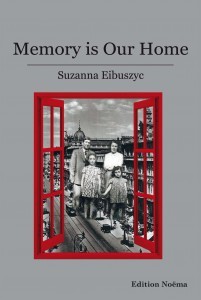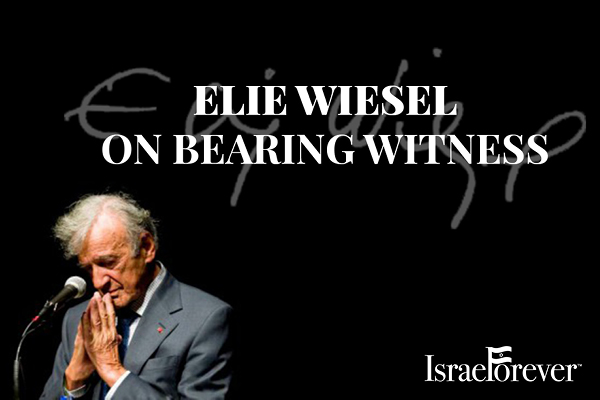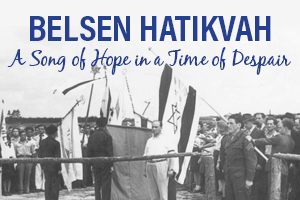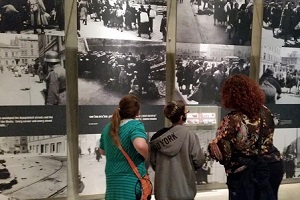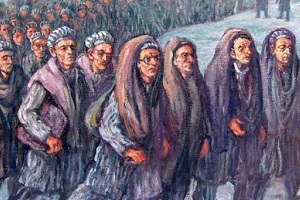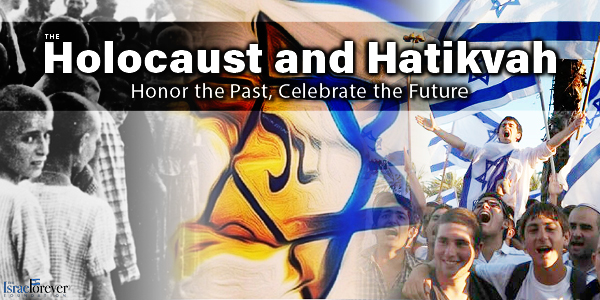Crossing Paths with Professor and Writer Elie Wiesel
By Suzanna Eibuszyc
Freud observed that to mourn and to move on you have to know what you have lost or mourning can turn into a permanent melancholy.
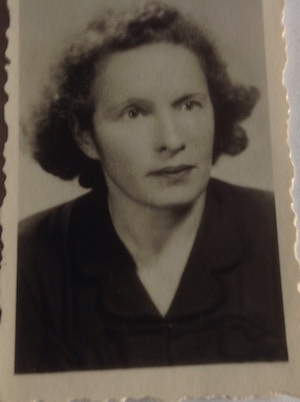
I have never seen any photographs that connected my mother to the extended family she so often talked about. I was frightened, confused, and also ashamed that I did not believe her. In order for my child's mind to reconcile something I could not comprehend, I had decided that my mother had made this family up, that those people never existed.
As a child I remember my mother, mourning her five nieces and nephews. "So young and innocent, they should be among the living," is what she repeated, often. Growing up with this made me a witness to what had happened. For my first twenty years, I went from feeling sympathetic to feeling nothing but contempt. I was angry and also overwhelmed for being connected to my mother's continuing grief.
We were living with the ghosts of my mother’s vanished family. Her decision to run away from Warsaw after the German invasion haunted her all her life. A young woman of twenty-two, she said good-bye to her entire family, thinking she would be back in a few weeks. To stay alive, she with sister Pola and brother Sevek keep going east into the unknown on trains crammed with other refugees. They found themselves deep in Stalinist Russia, far from home and family, full of remorse and regret. But this decision saved my mother’s and Pola’s life.
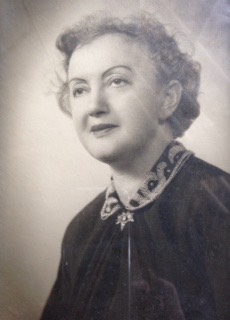
Sevek died as a war hero. He was killed on the battlefield, fighting the Nazis, in Astrakham, in January 1942. After trying to return to the eastern Polish territories, occupied by Soviet Russia, Sevek was arrested by the NKVD, secret police. And in the summer of 1940, at age 25, was sentenced to five years of hard labor in Karelian woods, in Archangel, Kotlas. When Hitler invited Russia, the Polish Army started forming on Russian soil, at the insistence of the allies and the Polish government in exile. It came to be known as "Ander's Army". Sevek and thousands like him were released from the Gulag prison camps to the front lines.
Throughout my childhood all I hear was stories but I never saw any evidence that my mother's family actually existed. I tried to understand how they could have vanished, Adek, Sala, and Anja, their 5 children, even Sevek. I grieved with my mother, although in truth, I could not comprehend how her family could have just disappeared. I had never seen any photographs to prove they had existed. I was ashamed that I did not believe her. I decided that my mother had made those people up.
I was frightened by my mother's stories about surviving the bombing of Warsaw and the six years of war. Overwhelmed, I looked for ways to feel safe. I focused my attention on what I perceived to be my mother's incredible adventure in Russia. I tried to picture her living in exotic, interesting places: the beautiful cities of Saratov and Moscow where she even experienced romance and love. She lived in Uzbekistan, in the desert, under a hot sun, and ate exotic food. I never allowed myself to see her hungry or sick. My mother was heroic and strong, splendid and beautiful in her tailored black coat. From those early childhood stories, I decided I wanted to be like her, to travel, to go to unusual and faraway places.
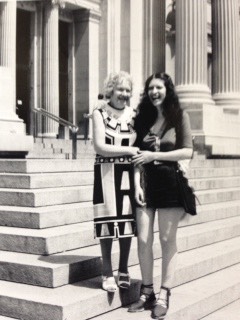
I remembered that when I was still a child all I ever wanted was to follow in my mother's footsteps. After all I was my mother's daughter. I inherited her spirit. We saw the world through the same set of eyes. When I traveled to Israel, to study ancient and present cultures, it was like revisiting the landscape of my childhood. I got to work under the hot sun, live in a tent, ride a camel and like my mother did in Uzbekistan I ate exotic food. I excavated in the desert at Tel Beer-Sheva. I observed the lives of Arab men and women, evoking my mother's stories of strange lands.
Professor Elie Wiesel was instrumental in my conviction, determination, and persistence which led me to translate, research and eventually publish my book, based on my mother’s journals. His advice to me was not to be afraid of the journey ahead.
My awakening to the dark period in the chapter of our Jewish Polish history happened earlier, in 1971-1974, at City College of NY when our paths crossed while I was taking his classes at the department of Jewish studies. Finally the things that bewildered me as a child growing up in communist Poland in the shadows of the Holocaust aftermath started to make sense.
When Prof. Wiesel introduced us to his experiences in Auschwitz-Birkenau and Buchenwald concentration camps, I started to understand my parents. Reading his books made me realize that although my parents were survivors, that in losing their entire families, they could not escape their past. It was during this time that I first started to understand the importance of the stories my mother passed on to me throughout my childhood. When I told Wiesel about my mother he said, "Your mother must write her story. Future generations must know. You must help her to do it.
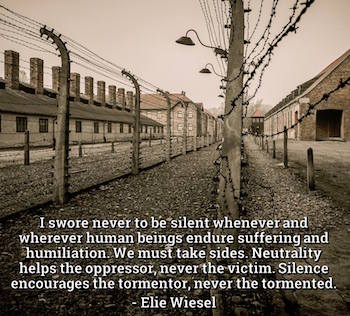
In the words of Elie Wiesel “silence is never an option” So to great risk to her sanity and health my mother agreed to commit her memories to paper and I was left with a greater understanding of our history which in turn allowed me to confront the ghosts of my childhood.
Throughout my life I was torn between letting go and staying connected to my difficult history, somehow I continually found myself being pulled back into my mother’s world despite myself. My conscience would not allow anything else. With my mother's death, memories became sacred. On the day my mother died and for the next six years I entered my mother’s world. I became my mother’s journal guardian and confronted my memories of growing up in Poland.
I belong to the 2Gs and my biggest fear is that not only the Holocaust Survivors are getting old and are dying but the same is true for the 2Gs. I feel a great urgency to connect our history to the future generations because it will be up to them to make sure it is not forgotten. And Israel and its reestablishment in 1948 fits right in our historical narrative.
All one has to do is watch the documentary film, The Long Way Home, 1997, which shows how for 3 years survivors lingered in conditions similar to the Nazi's concentration camps, in barracks surrounded by barbed wire. Conditions in DP camps were deplorable. Hygiene was non-existent and morale was extremely low. The world simply wanted to forget that the Jewish survivors were still among the living. No country wanted them. Jews around the world rallied in an attempt to reestablish a Jewish state. The first Jewish survivors who returned homeland, to Poland, were murdered, in the Kielce Pogrom. My mother and her sister, Pola, with whom she survived Russia and Uzbekistan, were separated on their return to Poland in the summer of 1946. Pola's train ended up in Germany, in a German DP camp and lived in such conditions from June 1946 till 1951, when she finally arrived in NYC.
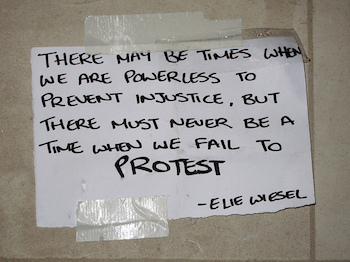
The reason there is no end to our stories, when Hitler and Nazi Germany started WWII, it ended with 70 million dead, six million of Europe’s Jews. If Israel had existed, Holocaust and such things like Auschwitz would never have been allowed to happen. There was no country called Israel, Jews were simply a minority, living throughout different European countries. Decades later, and now we have the answers to “Why Auschwitz Was Never Bombed”, and why the Jews were abandon. When the calls came to rescue the Jews, to bomb Auschwitz, the allies did not think the bombing would be effective and only a symbolic gesture. Allies’ goal was victory over Nazism.
Rescuing anyone in need of rescuing would have to wait. However, when the Polish Armed Underground turned to Britain and America for assistance the response was a sympathetic one. Moral and political intentions came into play in the liberation of Warsaw. To assist the uprising, the Western allies parachuted supplies knowing very well that 90% of it would not reach the Poles but the Germans. This of cause has to be seen as a political calculation. The questions arise, why rescuing the Jews received a negative response and why rescuing the Poles received a positive one? Poland was a country, a political unit, the Jews on the other hand were nothing, they had no political power whatsoever. They had no economy, no army and no power. The reestablishment of Israel as a political power is important and necessary for Jewish survival throughout the world.
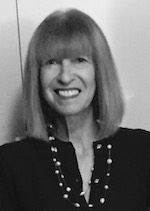
I was born in communist Poland after the war, where I lived with my family until the late 1960s. Before leaving for America, I attended High School, Szalom Alejchem in Wroclaw. I graduated from CCNY with a BA in Anthropology. I received my MA in Archaeology from UCLA, and was awarded a grant, allowing me to conduct research and travel to Poland and Israel. Meeting professor and writer, Elie Wiesel, through the Department of Jewish Studies at CCNY, I realized the importance of Holocaust survivors' stories.
I insisted my mother write down her incredible accounts she shared with me throughout my life. Ultimately, I addressed the trauma of growing up in the shadows of Holocaust aftermath and how this trauma is transferred between generations. For me, the 2G, I had no way of knowing, but the seed for writing "Memory is Our Home" was planted in my childhood. Looking back in time, I know now that my entire life was a preparation, to be "a memorial candle". I assumed the burden of my parents' emotional world and I became the link between the past and the future. This history is embedded deep in my memory, my soul, it is part of my DNA. My book, Memory is Our Home was published April 2015. Click HERE to buy it now in English. Polish version available HERE.

